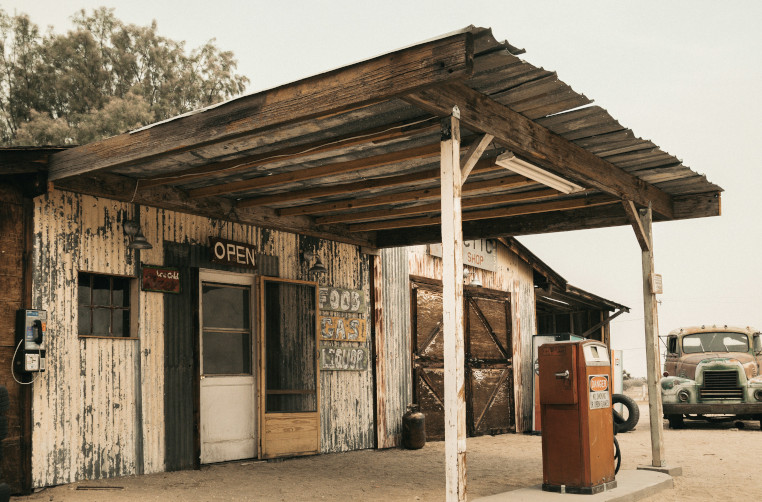Last week, the Biden administration announced it is pausing export approvals for Liquified Natural Gas (LNG). LNG, which has been branded a “transition fuel” by Western governments and fossil fuel companies, has an enormous impact on both local environments and global heating, with some researching suggesting its emissions are just as filthy as coal. The USA has, in the past 10 years, become the biggest producer and exporter of LNG; it was recently estimated we have 125 years left of LNG in our reserves.
Biden’s Department of Energy framed the decision as the administration’s commitment to being “pro-climate”, contrary to MAGA republicans, saying that during the pause, the department will evaluate the real cost of LNG:
“During this period, we will take a hard look at the impacts of LNG exports on energy costs, America’s energy security, and our environment. This pause on new LNG approvals sees the climate crisis for what it is: the existential threat of our time.”
Alongside this news, the New York Times broke the story that the Biden administration has also paused a decision on approving what would be the largest LNG exporter in the USA. The terminal, CP2, is one of seventeen proposed terminals. The USA already has seven, with five under construction.
“The White House is directing the Energy Department to expand its evaluation of the project to consider its impact on climate change, as well as the economy and national security, said these people, who spoke on condition of anonymity because they were not authorized to publicly discuss internal deliberations. The Energy Department has never rejected a proposed natural gas project because of its expected environmental impact.”
The story was spun as Biden responding to pressure from environmental groups who campaigned for months against the CP2 project. On the very same day, it was announced plans to expand a LNG facility in Tacoma were abandoned after a concerted campaign by activists.
So far so good—right? This is the democratic process at work: when the public lobbies the government, the government listens in kind, showing its interests and values to be aligned with its citizenry. Coming up to an election later this year, the only thing Biden’s administration has going for it right now is its “pro-climate” agenda.
Perhaps not.
The day before the New York Times broke the story about CP2, and three days before the administration’s statement placing climate concern front and centre, energy analyst Art Berman wrote a short piece about how the United States is running out of gas. He warned that production growth of shale gas—which accounts for 82% of U.S dry gas production—is slowing, and stated the plans for seventeen new LNG export terminals “could not come at a worse time.”
The data he used to come to this conclusion was from the U.S Energy Information Administration—a program of the U.S Department of Energy.
Whilst the work of activists is brave and imperative at this critical juncture in history, we must not be lulled into believing the democratic process works when we ask nicely, long enough. The holy trinity of keeping power is the government, the media machine, and our willingness to buy their headlines. Biden’s plans to dramatically expand the country’s LNG facilities over the past years has shown time and time again he is not a climate candidate, but an energy-dominance candidate, more concerned with keeping the US’s grip on the world order than transitioning towards a sustainable future. His administration’s sudden U-turn likely is due to shale production peaking than a sudden interest in the alarm raised by activists.
The governments of our day are far more resistant to public pressure than in previous years (30,000 dead in Gaza, half are women and children, millions on the street around the world, the death toll rises…) This may be due to the increasing divorce of wealth-generation from labour, with elite classes increasingly able to generate and secure wealth from market speculation, inter-network deals, government contracts and machines. With machines to perform a huge amount of what was previously dependent on manual labour, taking care of and listening to the citizenry is less necessary for a functioning financial market (as evidenced by the incessant thievery of wealth from the bottom to the top).
Biden’s PR team has and will continue to spin this story as evidence of his measured stance on long-term objectives vis-a-vis sustainability, but his administration will have to source an alternative fuel from somewhere else, and prop up the energy markets which underpin all others. It seems highly unlikely they will turn towards more “renewable” sources yet less power dense which depend on Chinese supply chains, given the reticence to do so up until now. But, given oil production is increasingly expensive to pull up lower quality product, that leaves us with the fossil fuel which started it all: coal.
We are running out of fuel. We need an urgent plan to contract our energy needs if we are to survive the impending crash; there will be no “clean” energy until governments come clean.
Planet: Critical is 100% independent and reader-funded. If you value it, and have the means, become a paid subscriber today!






